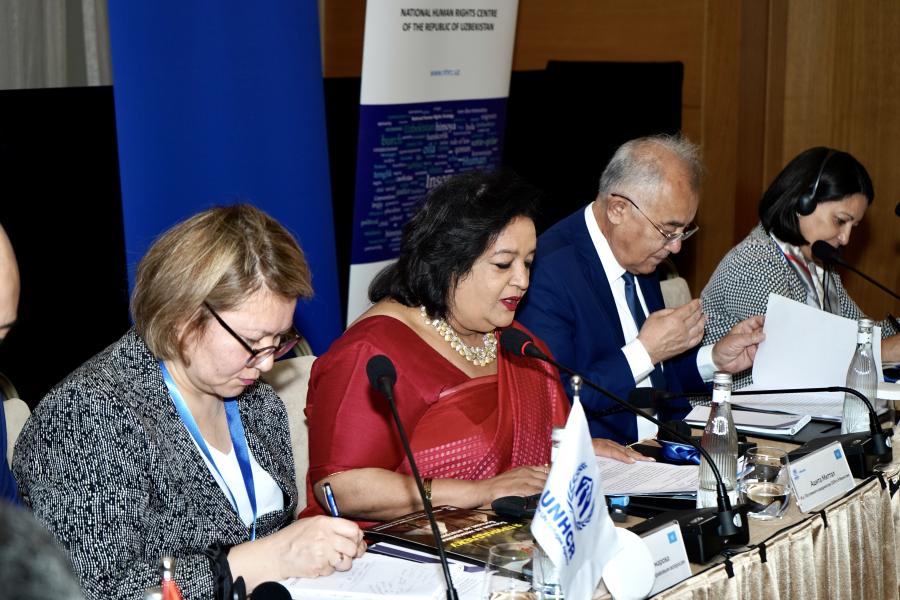Central Asian States reaffirm commitment to registering all children at birth
17 May 2024
Kazakhstan, the Kyrgyz Republic, Tajikistan, Turkmenistan and Uzbekistan accelerate efforts to end statelessness.

Representatives from the Governments of the Republic of Kazakhstan, the Kyrgyz Republic, the Republic of Tajikistan, Turkmenistan, and the Republic of Uzbekistan, gathered in Tashkent today, reaffirming their commitment to ensuring every child born on their territories are registered at birth.
The ‘Central Asian Conference on Ensuring Birth Registration to Prevent Statelessness’ was convened by UNHCR, the United Nations Refugee agency, in collaboration with the National Human Rights Centre of the Republic of Uzbekistan.
Statelessness, the situation of not being recognized as a citizen by any country, affects millions of people around the world, and over 37,000 people in Central Asia alone. Without a nationality, stateless people often cannot access the most basic of rights, including education, employment, healthcare, and freedom of movement.
Birth registration is a critical first step in securing legal identity, and enabling individuals to contribute to society, by paying taxes, and health and social care levies, and the sustainable development of their communities.
“We are proud to host this conference today and share with participants the successful efforts undertaken by the Republic of Uzbekistan to end statelessness,” said Akmal Saidov, First Deputy Speaker of the Legislative Chamber of the Oliy Majlis of the Republic of Uzbekistan and Director of the National Centre for Human Rights. “In 2018, Uzbekistan amended legislation ensuring all children born on our territory are registered at birth, and in the last five years alone we have reduced the number of stateless people by over 75 percent.”
Conference participants represented national administrations responsible for managing birth registration, or involved with the process, including Ministries of Foreign Affairs, Ministries of Interior, Ministries of Justice, and National Human Rights Institutions, as well as international organizations.

Six key topics were explored through the day, including: Establishing universal birth registration systems and integrating them with education, health and social services; Leveraging technology for efficient birth registration; Best practices in universal birth registration in the region; and Protecting the rights of stateless children and children of unknown parents.
“Ensuring legal identify for all, including birth registration, is enshrined in the 2023 Agenda for Sustainable Development, and committed to by all countries of Central Asia as the UN Member States,” said Ashita Mittal, Acting UN Coordinator in Uzbekistan. “We commend the significant achievements of Kazakhstan, the Kyrgyz Republic, Tajikistan, Turkmenistan and Uzbekistan in their efforts to reduce and eradicate statelessness. The UN stands ready to support states to ensure forcibly displaced and stateless people are not left behind, but can contribute to achievement of the Sustainable Development Goals.”
In 2014, UNHCR launched the global #IBelong Campaign to End Statelessness. With 2024 marking the end of the 10-year campaign, States across the world are accelerating efforts to reduce and end statelessness.
Statelessness in Central Asia largely resulted from the dissolution of the Soviet Union. While many residents were able to confirm or acquire the nationality of the independent States, some still remain in legal limbo. As of January 2024, there are 37,819 known stateless people in Central Asia.
To date, 98 States have acceded the 1954 Convention, and 80 States to the 1961 Convention, including six CIS countries. Turkmenistan is the only Central Asian State that has acceded the two UN Statelessness Conventions.


